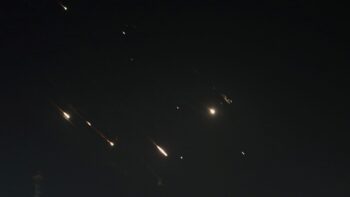
Yesterday, at a subcommittee hearing attended by just half a dozen Senators, the Pentagon’s top weapons buyer made a blunt admission: The military’s most expensive program, the stealthy F-35 Joint Strike Fighter, has been hacked and the stolen data used by America’s adversaries. acquisition undersecretary Frank Kendall didn’t say by whom, but the answer is almost certainly China, a cyber superpower whose People’s Liberation Army Air Force has recently rolled out some suspiciously sophisticated stealth fighter prototypes of its own. The Russians also have skilled hackers and “5th Generation” stealth jet programs, but they’re not suspected of such direct copying, at least not yet.
“I’m confident the classified material is well protected, but I’m not at all confident that our unclassified information is as well-protected,” Kendall said. “It’s a major problem for us…. What it does is reduce the costs and lead time of our adversaries to doing their own designs, so it gives away a substantial advantage.”
The bad news isn’t new news: That someone had hacked F-35 subcontractor BAE Systems was first reported six years ago, and just this February Washington Post reporter Ellen Nakashima obtained leaked information naming the Chinese as having compromised not just the F-35 but two dozen other weapons program. Administration officials have been publicly pressuring China to rein in its hacking. But it’s still remarkable that such a senior official would so bluntly admit that US interests have been so directly harmed.
Navy jet trainer fleet operations remain paused after engine mishap
One week after the incident, a Navy spokesperson says the service is continuing to assess the fleet’s ability to safely resume flight.


























